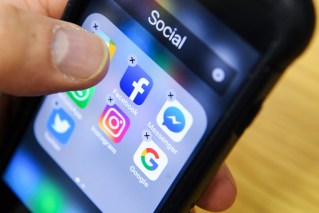Australian piracy rates far from slowing down
A new government report has revealed the large number of Australians going online to illegally download content.
According to the survey, one in four Australians – or 26 per cent – are pirates.
• How Taylor Swift could anger Chinese censors
• Find out what the median house price is in your city
• NSW Premier turns himself into police
It also found that none of the measures policy makers are currently implementing or floating will stop us seeking out our online entertainment for free.
The report, conducted by communications Minister Malcolm Turnbull’s department in unison with the UK government, sheds light on the massive scope of our online piracy.

More than 50 per cent of Aussies know Netflix. More than any other local or international streaming service. Photo: Getty
Named the Online Copyright Infringement Report for the Department of Communications, it found fairly priced and readily available content delivered quickly is what people are willing to pay for.
Of the 26 per cent of Australians who get their media illegally, the department’s survey found they would stop infringing if content: costed less (39 per cent), was easier to get (38 per cent) and had the same release date as other nations (36 per cent).
The data also found the optimal price for a music track and monthly subscription service.
A song would need to be priced at no more than $1.19 and a monthly subscription to a streaming site would be around $5 a month.
These findings fly in the face of recent government measures to stop online piracy. These included allowing media owners to issue threatening letters.
The data from this report found that such a letter would only stop 20 per cent of people.
Streaming services Netflix, Presto and Stan price television and video content at around $10 per month and survey respondents felt this price was at an acceptable level.
In figures that will please Netflix, the American streaming service is the only provider known by more than half of all Australians, at 51 per cent.
According to the government report, anyone who uses a virtual private network (VPN) to access overseas content does so illegally.
This is the first time the government have made their stance on VPNs so clear.








